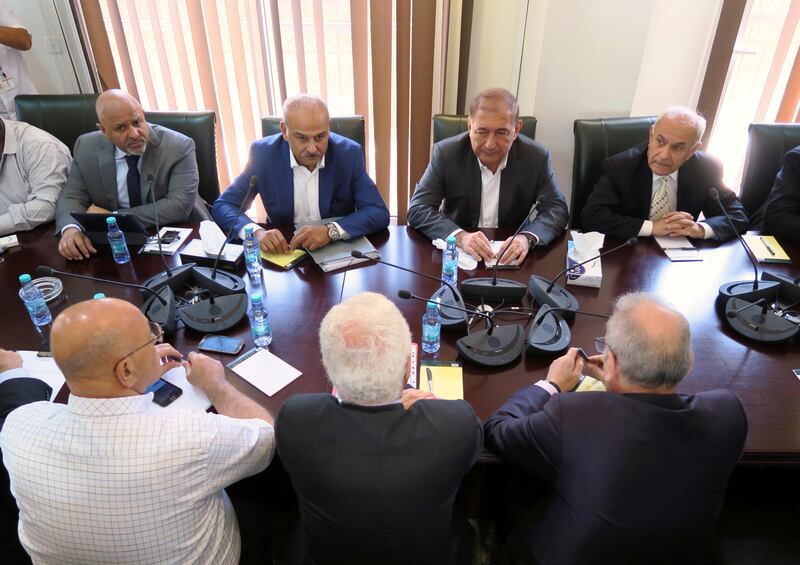Members of the Syrian opposition met with representatives from Cairo and Moscow in Riyadh on Monday in hopes of establishing a united front in negotiations to end the Syrian crisis.
The Saudi-backed High Negotiation Committee met participants from Egypt and Russia to discuss key issues, including the role of Syrian president Bashar Al Assad, to find a political solution to the six-year conflict.
Talks were aimed at uniting the three opposition delegations under the UN Security Council Resolution 2254 which outlines a road map for a peace process in Syria, while setting a timetable for talks between government and opposition members. It also sees an inclusive and Syrian-led political process that meets the aspirations of the Syrian people as the only sustainable solution to the current crisis in Syria.
Salem Al Musallat, HNC spokesman, said before the meeting that talks were “expected to end on the note of announcing the names of the opposition’s representatives that will [take part] in the Geneva peace talks”.
But such talks have become more or less pointless, said Mohammed Hineidi, a senior analyst at the Delma Institute.
"The opposition is plagued with divisions, and these talks occurring today are 'more of the same' - a formality for the Riyadh-formed HNC," he told The National. "The HNC will like always continue to call for an Assad transition - that is, an end to the Syrian conflict on the condition that Bashar Al Assad leaves power."
Due to the strategic defeat of rebels groups on the ground in Syria, and a de facto victory by the regime forces, the chances that Mr Assad will step down “are close to nil”, he said.
The outcome of the talks therefore is to try and show that the HNC still matters “despite its irrelevance, lack of authority, and more largely the defeat of the Syrian opposition”, said Mr Hineidi.
The meeting was scheduled to take place on Sunday, but the HNC postponed it as the Russian delegates were delayed in their arrival to Riyadh.
Previously, Moscow’s platform had refused to participate in Riyadh’s meetings as they failed to come to an agreement with Cairo on solving the much contested issue of Mr Al Assad’s future role in government.
The HNC refused to let Mr Al Assad remain in power even for a transitional phase and was backed by Cairo.
The HNC was formed in Saudi Arabia in 2015 to replace the Syrian National Coalition, which preceded it as the internationally recognised representative of the Syrian opposition.
The SNC was beset by infighting and criticism that it was dominated by only a small number of opposition factions. Although the HNC has included more groups, it has also suffered from similar accusations.
The next round of UN-sponsored peace talks is due to take place in October in Geneva.
UN Syria envoy Staffan de Mistura said on Thursday “the United Nations hopes for a serious negotiation between the Syrian government and a unified HNC in October or November”.
He said he expected a meeting in October, possibly in Riyadh, among the three opposition delegations "to take stock of the realities on the ground with a view to consolidation".
Before that, Mr de Mistura has planned a brief UN round of diplomacy with the oppositions and government around mid-September in Geneva.
Mr de Mistura said last week that he hopes for "real, substantive" peace talks between the government and a still-to-be-formed unified Syrian opposition in October.
Meanwhile, Egyptian foreign minister Sameh Hassan Shoukry made an official visit to Moscow on Monday, where he met his counterpart, Sergei Lavrov, to discuss regional developments, including the Syrian crisis.






